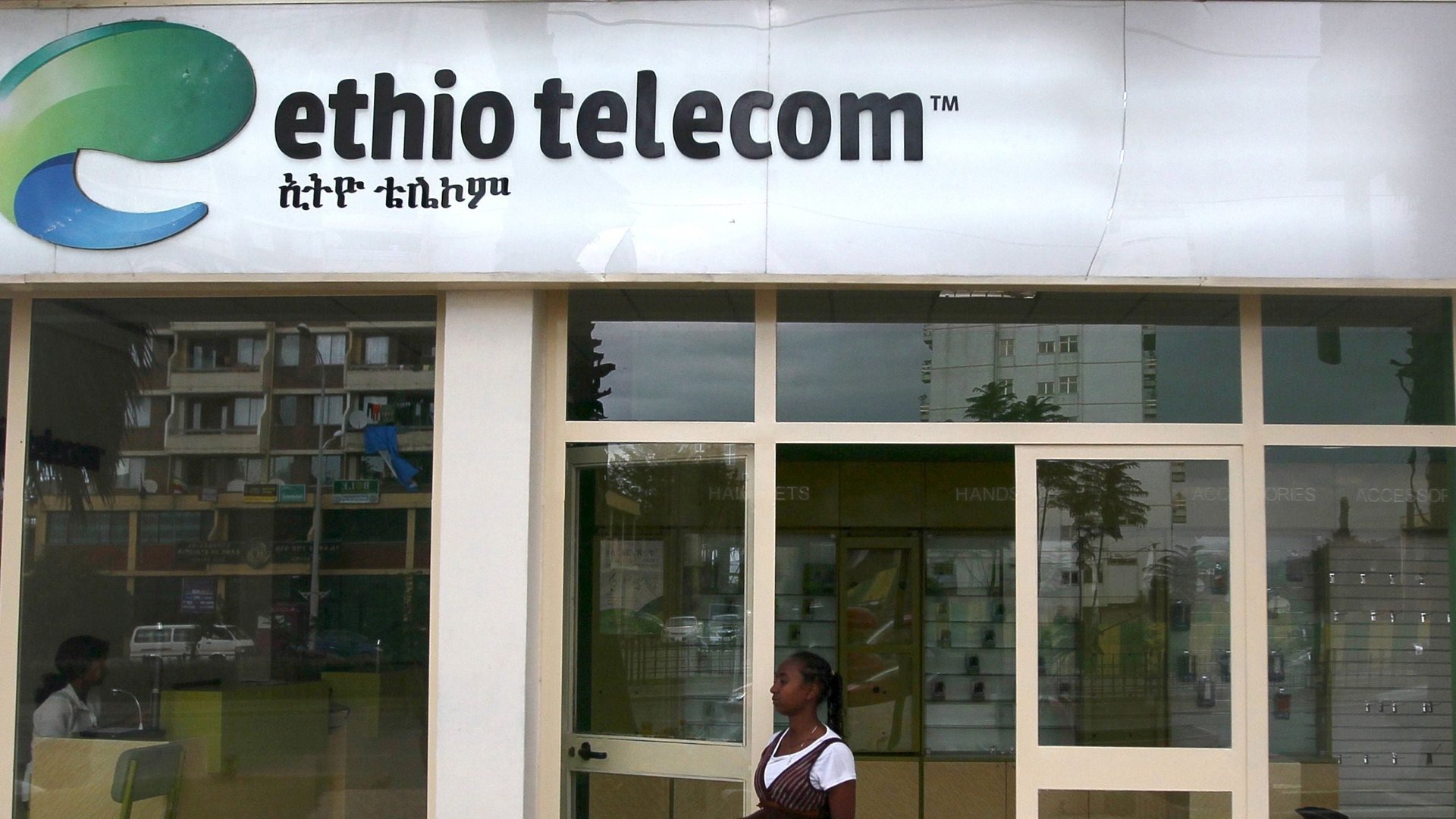Ethiopia’s plan to privatize and split up its mobile phone monopoly won’t be as easy as it looks
After decades of a centralized economic model and antiquated socialist red tape, Ethiopia is opening up to the world.


After decades of a centralized economic model and antiquated socialist red tape, Ethiopia is opening up to the world.
Last year, the government announced plans to gradually privatize state-owned enterprises in a bid to expand the role of the private sector, increase foreign direct investment, revitalize the economy, and reduce unemployment and poverty rates. A 21-member advisory council was appointed to steer the process, and to help loosen state monopoly, both partially and fully, on enterprises including aviation, shipping and logistics, energy, and telecommunications.
The move was part of sweeping reforms introduced by prime minister Abiy Ahmed, who ended hostile relations with neighboring states, prioritized regional integration, and reduced the military’s stake in key infrastructural projects.
With over 100 million people, Ethiopia has had one of the world’s fastest-growing economies for years now. Yet the landlocked nation has remained poor, with a per capita income below $800, according to the World Bank. Its journey to become a lower-middle-income nation by 2025 has also been hampered, and currently ranks 167 out of 190 in the ease of doing business.
These factors, coupled with foreign currency shortage, limited funding options given escalating debt levels, a shallow domestic debt pool, besides calls from global lenders to adjust its policies to strengthen its economic competitiveness, has made privatization an inevitable and attractive choice, says Signal Risk analyst Menzi Ndhlovu.
State-owned enterprises are particularly fitting given their lucrative nature and sphere, Ndhlovu argues. “This makes them enticing propositions for the investors and therefore more likely to yield handsome bids.”
This month, authorities announced telecommunications company Ethio Telecom will be the first of four state-owned firms to be denationalized. Founded in 2010, the company is the sole voice and data provider and caters to over 41 million customers. Abiy has said the government plans to sell a 30 to 40% stake to top-rated industry firms and will split the state-run company into two competing businesses to spur competition.
The pronouncement has sparked interest globally from companies including from France’s Orange, along with Kenya’s Safaricom and the South Africa-based MTN, according to Reuters. The potential here is the ability to not only register more users but also enhance financial inclusion by introducing mobile money services like M-Pesa.
The Horn of Africa nation has a nascent e-wallet sector, with transfer platforms like MBirr and the Netherlands-based Belcash only introduced in 2012. There’s also the prospectus of championing more mobile-based products like loans, e-commerce, and insurance, especially to the more than 12 million smartphone users in the country.
One key test the privatization of Ethio Telecom will face is how much control the government is willing to cede. The operator was used as a critical tool in state surveillance and to silence dissenting voices, according to Human Rights Watch.
Reports have also noted that if M-Pesa was rolled out, Safaricom would host the servers in Nairobi—a move, Berhan Taye, an activist with digital advocacy Access Now, says would raise questions over who will have access to the personal and financial data of users.
“We don’t know who it’s being shared with. Once data crosses a border, it’s a different conversation.”
As part of the transition, observers say privatization of the operator must also come with full liberalization of the telecoms sector to trigger full and fairly-regulated competition. Interchanging a state-controlled sector with the private monopoly “would be the worst possible ownership model,” says Henok Assefa, managing partner at Addis Ababa-based consultancy Precise.
Both the telecom segment and Ethiopia’s receptiveness to economic liberalization will also likely depend on achieving political pluralism, ensuring peace and security, and dealing with the vested interests in the ruling party who might be wary of decentralization. And while the introduction of these reforms is propitious, Ndhlovu says “it also incumbent among businesses and investors to understand Ethiopia’s disposition and remain pragmatic in their approach to the country.”
Sign up to the Quartz Africa Weekly Brief here for news and analysis on African business, tech and innovation in your inbox